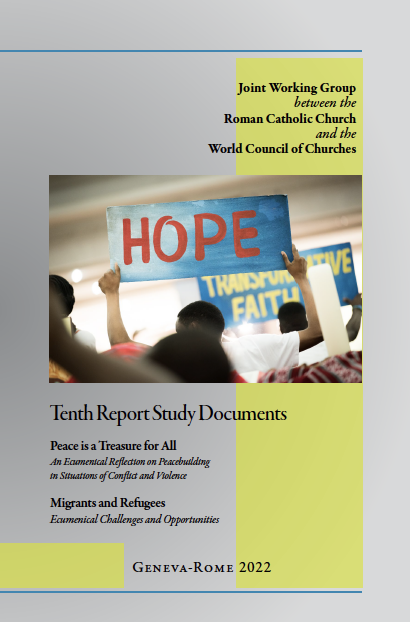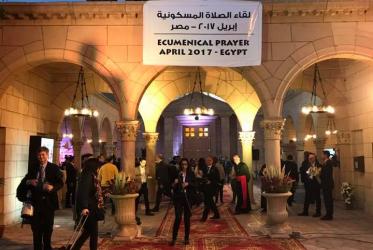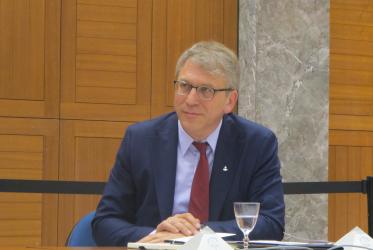Displaying 1 - 20 of 27
19 August 2022
“Gathering in Grief” mourns Rev. Phumzile Mabizela
07 July 2021
Healing Together
A Facilitator’s Resource for Ecumenical Faith and Community-Based Counselling
15 October 2020
WCC continues to receive 70th anniversary greetings
14 November 2018
#WCC70: Nathan Söderblom, ecumenical pioneer
29 August 2018
#WCC70: A story of life
07 June 2018
Pope Francis at the World Council of Churches
31 May 2018
Roman Catholic-WCC group focuses on peace-building, migration
19 September 2017
What does ‘prudence’ mean for dialogue and peace-building?
16 November 2016
In Ghana, women bring open minds, honest words
05 July 2016
Catholic-WCC group pursues new mandate
13 April 2016
















